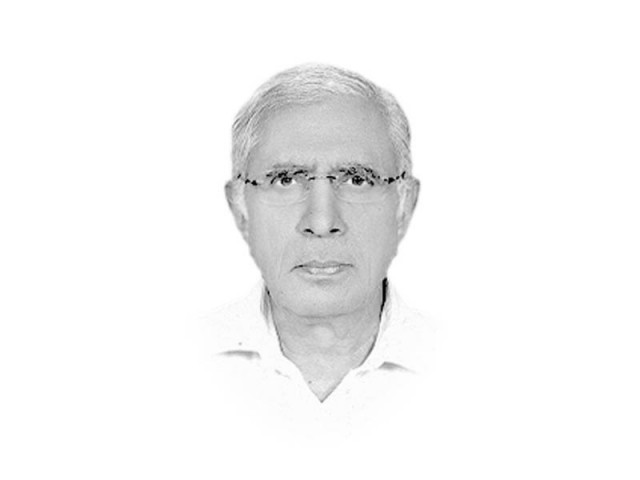Anonymous
Before granting anonymity, the media must consider the motivations of the source and be wary of possible manipulation

The writer served as Executive Editor of The Express Tribune from 2009 to 2014
A good media person is one who has at his fingertips reliable sources of information. Most sources privy to important developments would be open to be identified. Many, however, would like to remain anonymous for a number of reasons. The final decision whether or not to identify the source would, however, be entirely that of the journalist him/herself.
While using the information provided by a source, a media person would need first to weigh the news value of the information received. Next, he/she would need to double check the information, test it against inaccuracies and slants. And while reporting the information he/she should know that they are staking their own credibility and integrity because the first victim of any inaccuracies or factual mistakes would be the broadcaster and not the source.
Of course while obtaining the permission from the source to identify him/her, the media person needs to be as transparent as possible in assessing the vulnerability of sources as well as their value as providers of information. They should not, except in the most extraordinary circumstances, use subterfuge or deception in their dealings with sources.
Mr Aidan White, Founder/CEO, Ethical Journalists Network in a recent opinion piece (Ethical Ground Rules for Handling Sources) says that of paramount importance is the need for journalists to reassure sources that their identity will be protected. But often this is easier said than done. Protection of sources is well recognised in international law as a key principle underpinning press freedom.
It is of course the duty of media persons to protect the identity of confidential sources. And of course, media persons are morally and professionally obliged not to hand over their recordings, notes or images to anyone other than the Editor and the latter is equally obliged to safeguard these from falling in the hands of unauthorised persons, especially those that are affected by the report based on these notes and recordings.
However, the media has a duty to be as forthcoming as possible in broadcasting information. This naturally discourages the use of anonymous sources. In case where one finds the information is news worthy and in public interest but in media’s judgment the disclosure of the identity would jeopardise the life or interest of the source or when the media person finds it impossible to obtain the information from any other source the exception to the rule can be resorted to. And the media must explain along with the story being broadcast in as much detail as possible why it cannot identify the source.
Of course, before granting anonymity, the media must consider the motivations of the source and be wary of possible manipulation. The media persons should always guard against being used by sources that have their own personal, class or some narrow government or state agenda. Such stories are called ‘plants’ and media persons should avoid such tainted information coming from ‘interested’ sources at all costs.
Media persons should also be well versed in the laws of the land, especially those that deal with defamation, libel and sedition. While using leaked classified documents whose origin appears dubious the media persons should consult the legal advisor of the media organisation with the permission of the Editor. Encryption and digital surveillance should be resorted to when working on sensitive stories.
Clandestine gathering of information like resorting to hidden camera or hidden tape-recorder is not something that can be called ethical unless of course it serves some public interest.
Published in The Express Tribune, February 11th, 2017.
Like Opinion & Editorial on Facebook, follow @ETOpEd on Twitter to receive all updates on all our daily pieces.















COMMENTS
Comments are moderated and generally will be posted if they are on-topic and not abusive.
For more information, please see our Comments FAQ